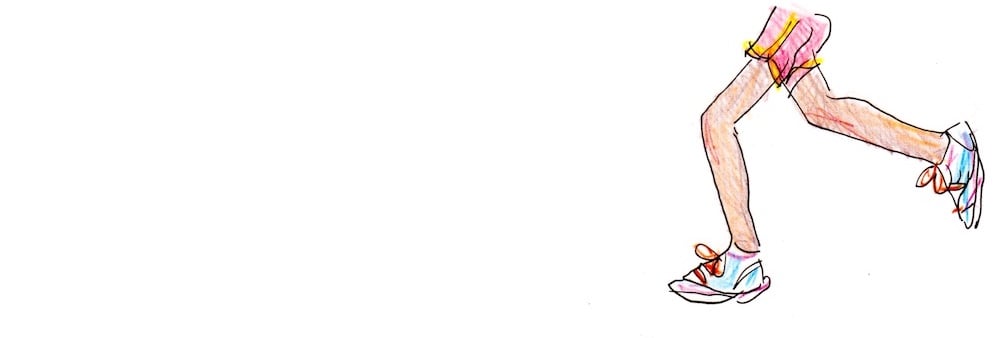Addicted to Exercise?

If you don’t like exercise or are getting sick of your workout routine, a few recent essays will keep you in good company. Last fall, Aja Frost wrote I Was (Am?) Addicted to Exercise for the newsletter Platonic Love:
I never deviated from or relaxed my exercise routine; it was sacred. As long as I exercised, my body wouldn’t slip back into its old state. I’d be safe.
And last week, Rod Gilchrist wrote I Was a Running Addict for The Guardian:
The trouble is, once you’ve got the running bug, it’s hard to scale back, even when your body demands it.
And a few days after that, The Guardian also ran I Thought Fitness Was My Superpower. Then I Realized It Was a Ball and Chain, by Sam Pyrah:
I tried to push through it – until, suddenly, neither my body nor my brain could find a reason to carry on. I slowed to a walk. I stopped my watch. I sat down and had a little cry, the sweat drying on my back. Then I walked home.
The essays remind me of a concept called Positive Addiction (and a 1985 book of the same name) — the idea that it’s possible to be truly addicted to things that are good for you. I’m an almost-daily runner, and I do understand how it could be described as addiction, although for now I just love it. Maybe a key is that I don’t run especially long distances. And it’s a relatively new habit. But I guess there’s (hopefully) still plenty of time for it to sour.





Comments 4
I am addicted to running in exactly this way. After 3 years of near-daily running, last fall I injured my knee enough to keep me from running for 2 months. The enforced time off caused behavior that was uncomfortably similar to the most stereotypical movie depiction of a drug addict going through withdrawal. I am have returned to routine running since then, but I now dread the inevitable day when I will finally have to stop.
I hesitate at calling it addiction. Partly because addiction is a specific disease and partly because is that even what this is? Isn't this more like plain ol irrational thinking? Isn't this just one of our many cognitive biases?
I get it though. If I stop playing basketball, I will become stressed out, ill-tempered, and prone to depression. I'm not addicted, I swear. :D
Having used Ozempic for a couple of years now I'm thinking the whole concept of addiction may need to be readdressed for the kind of disordered thinking that leads to always thinking about food or always concerned with fitness. With Ozempic I do not think about food all day, imagine my next meal, fantasize about what would be satisfying to eat. Without it all of that obsessive thinking occurs.
The fact that they are finding Ozempic to work with certain other compulsive disorders like gambling addiction and some OCD makes me think there is something fundamental about this kind of addiction which may or may not share characteristics with drug and alcohol addiction.
The other thing to consider in these articles, is that these people were all working out or running from their teenage years - since I only started in my 40s I don't know if the toll will be as intense. I love all those articles about women in their 50s and older who start ultra-marathoning. Hmm, my comment is kind of unrelated to the post, but it was in response you to wondering if you're running too much
Hello! In order to comment or fave, you need to be a current kottke.org member. If you'd like to sign up for a membership to support the site and join the conversation, you can explore your options here.
Existing members can sign in here. If you're a former member, you can renew your membership.
Note: If you are a member and tried to log in, it didn't work, and now you're stuck in a neverending login loop of death, try disabling any ad blockers or extensions that you have installed on your browser...sometimes they can interfere with the Memberful links. Still having trouble? Email me!
In order to comment or fave, you need to be a current kottke.org member. Check out your options for renewal.
This is the name that'll be displayed next to comments you make on kottke.org; your email will not be displayed publicly. I'd encourage you to use your real name (or at least your first name and last initial) but you can also pick something that you go by when you participate in communities online. Choose something durable and reasonably unique (not "Me" or "anon"). Please don't change this often. No impersonation.
Note: I'm letting folks change their display names because the membership service that kottke.org uses collects full names and I thought some people might not want their names displayed publicly here. If it gets abused, I might disable this feature.
If you feel like this comment goes against the grain of the community guidelines or is otherwise inappropriate, please let me know and I will take a look at it.
Hello! In order to leave a comment, you need to be a current kottke.org member. If you'd like to sign up for a membership to support the site and join the conversation, you can explore your options here.
Existing members can sign in here. If you're a former member, you can renew your membership.
Note: If you are a member and tried to log in, it didn't work, and now you're stuck in a neverending login loop of death, try disabling any ad blockers or extensions that you have installed on your browser...sometimes they can interfere with the Memberful links. Still having trouble? Email me!